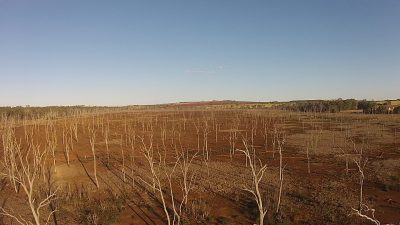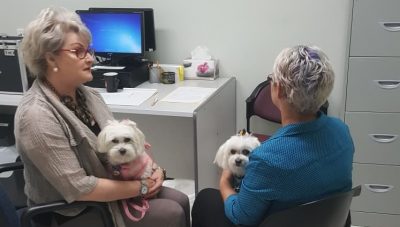Calls for More Mental Health Funding in Queensland’s Rural Areas
In drought hit Queensland, rain is not the only thing in short supply.

It can take weeks to access mental health support in Queensland’s rural areas.
Psychologists and counsellors regularly see more than ten clients a day.
Demand is growing, and calls for funding to alleviate the heavy workload are falling on deaf ears.
Real-life super heroes like Counsellor Christene Nissen travel all over Queensland to visit clients in some of the country’s most remote areas.
“When you talk about the 33,000 people of the South Burnett, I would see a fair range. I just wish I could see more but our waiting list is getting longer and longer.”
“We do two weeks in Kingaroy and then two weeks at the other centres, it depends on the critical incidents,” Nissen said.
She works from five different locations: Biloela, Kingaroy, Monto, Rockhampton and Yeppoon.
Some clients travel more than three hours for a session.
This comes at a time when the Australian Banking Association has proposed around $40 million toward financial counselling.
Which is an addition to the current government funding of around $45 million, meaning those struggling financially will have more access to support.
“I would really like funding to cover intervention and prevention for independent practitioners like myself.”
“Because we’re not registered psychologists, we do not get any funding under that Medicare framework,” Nissen said.
In 2006, the government did not include counsellors on the Medicare Benefits Schedule (MBS).
Australian Counselling Association (ACA) CEO Philip Armstrong has been fighting for 13-years to gain access.
“There are far more counsellors and psycho-therapists in regional areas than psychologists and psychiatrists, and so members of the community cannot get access to a Medicare rebate.
According to Australia’s Department of Health: In 2016–17, people living in major cities accessed the MBS for mental health services at a rate of 495 encounters per 1000 people.
‘The rate of encounters decreases the more remote the location, with 297 encounters per 1000 people for outer regional areas, 145 per 1000 people for remote areas and 81 encounters per 1000 people for very remote areas.’
Medicare funding would not only give rural communities more access, but counsellors like Christene could increase their associates and staff as well.
“In all my practices, I would see 13 people a day and that doesn’t mean that I push them through, it means that I make time to see everyone,” Nissen said.
Excessive workloads and time pressure put psychologists and counsellors at risk of burning out.
Philip has been the ACA CEO for nearly 20-years and knows how tough it can get.
“What we recommend; if a counsellor is to maintain their own mental health, they shouldn’t be seeing more than five clients a day.”
“We know you want to help as many people as possible, but you can’t help people if you’re not healthy yourself,” Armstrong said.
The South Burnett has two private practitioners covering nearly 33,000 people.
There are five Queensland health hospitals throughout the region, and all offer mental health services.
Many rural areas around Australia are in a similar position.
Times have never been tougher for our farmers and country communities, as the drought continues.

(Christene in session with her therapy dogs, Lionel and Lucy).
Ted Roker
Ted Roker is a third-year journalism student at the University of Queensland. He covers topics ranging from sport to mental health and believes in respect and honesty. Ted has a radio show at community station 4ZZZ and interns at WIN News Toowoomba. His passions include playing cricket and eating cookies.
